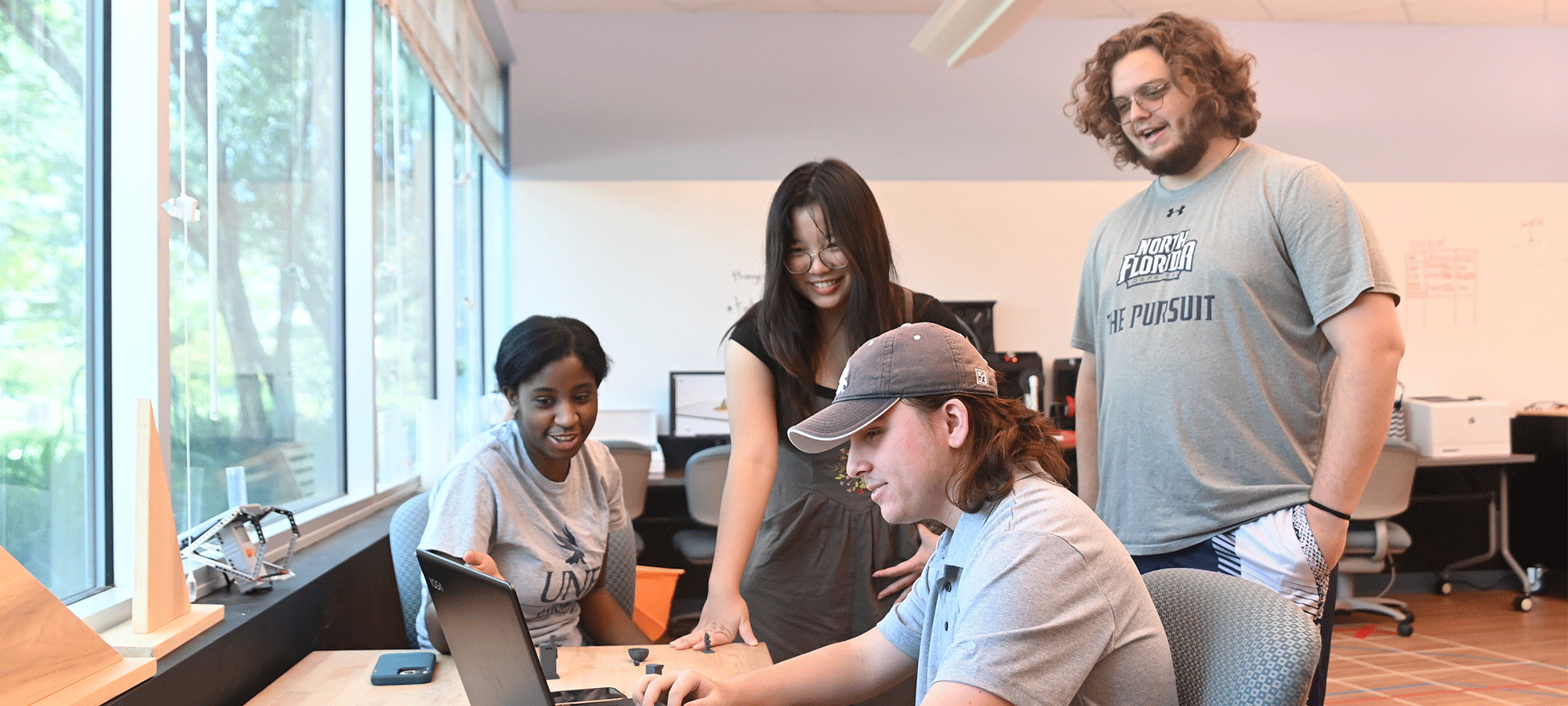HONORS ACADEMIC PROGRAM
- Requirements: First Year Experience
- Foundations
- Symposium
- Honors in the Major | Honors Capstone
The Hicks Honors College academic program creates and funds opportunities for experiential learning, including study abroad, undergraduate research, and internships that support your growth and achievement. Students complete most Honors requirements through their General Education or major program coursework and requirements.
Honors courses are not harder or more work; they offer powerful experiences that go beyond the textbook and classroom. The Honors program is designed to connect motivated students with high-impact experiences that promote success in college and beyond.
The Hicks Honors academic program has five pillars:
- First-Year Experience
- Honors Foundations
- Honors Symposium
- Honors in the Major
- Honors Capstone

College Requirements
First-Year Experience
All Honors “freshers” participate in the First-Year Experience, which starts with Honors Retreat, when new students arrive on campus several days before the rest of UNF to start making friends and building community through games and on campus adventures. Honors First-Year experience courses prepare you for college success and create opportunities for hands-on projects, undergraduate research, and service-learning that start to build your résumé in the first semester and help launch you into your major.
Honors Foundations
Honors Foundations is our lower-level curriculum of General Education courses and common pre-reqs like Calculus or Biology, which allow students to complete Gen Ed and lower-level requirements for their majors in small, supportive, high-impact sections that provide personalized mentoring opportunities with professors. Students who enter UNF with more than 45 credit hours or with their AA degrees do not have to take Honors Foundations courses but they still have access to Honors sections of any pre-reqs they might need.
Honors Symposium
Honors Symposium is the co-curricular heart of the Honors experience. What is Symposium? For the ancient Greeks it was a party, a convivial discussion after a banquet, where friends and peers boasted, debated, and entertained each other with learned, wise, and artful talk, as well as games, jokes, dancing, and music. Honors Symposium is how we get together outside of class for new experiences and to share our achievements. Honors students are leaders and doers, and Symposium creates opportunities for engagement through student presentations, workshops, volunteer service, professional mentoring, lectures, game nights, clubs, athletics, and other events.
Honors in the Major
Honors in the Major offers students an upper-level Honors pathway through their major programs of study, with the same benefits as Honors Foundation courses: smaller, high-impact classes that offer personalized mentoring and experiential learning opportunities, connecting students with community partners, internships, and research opportunities, building bridges to grad school, employers, and a career.
Honors Capstone
As the name suggests, the capstone is meant to "cap off” your work as a student. Most majors require a capstone course or senior project of some kind. What is a capstone project? It is simply one of your most impactful, important academic achievements, usually research, a project, an internship or even a study abroad experience related to your program of study that you complete during your last year or two in college. The capstone builds your résumé for grad school or a career by demonstrating your ability to do original and professional work, setting you apart from other candidates. What makes a Capstone Honors? In part, it is Honors values and resources: your intentionality and ambition along with Honors mentoring and impact multipliers. The Honors Capstone is different because, with Hicks Honors support, you can simply accomplish more.

